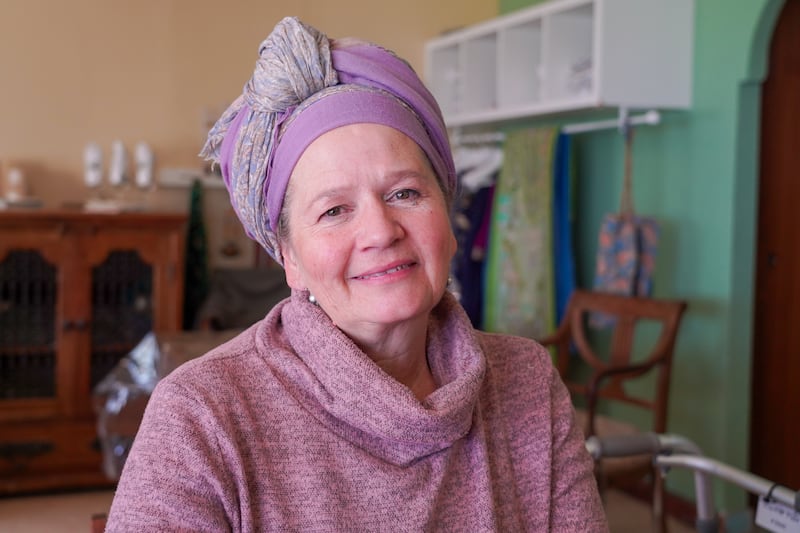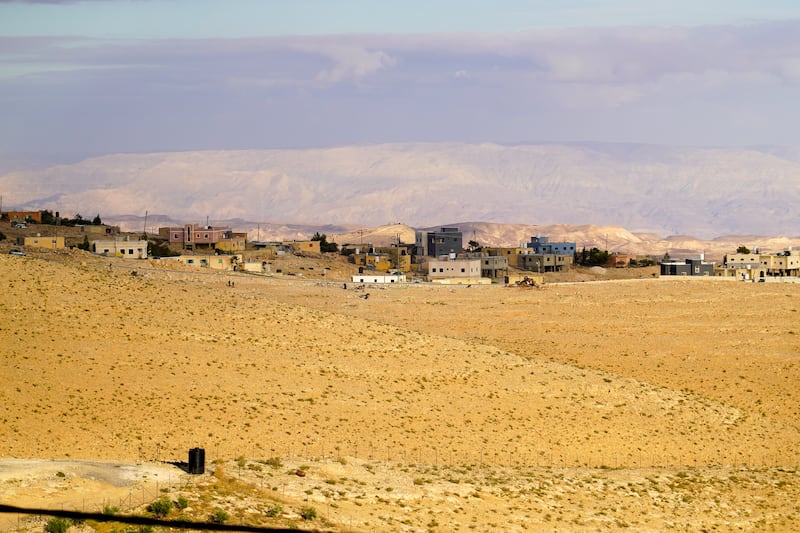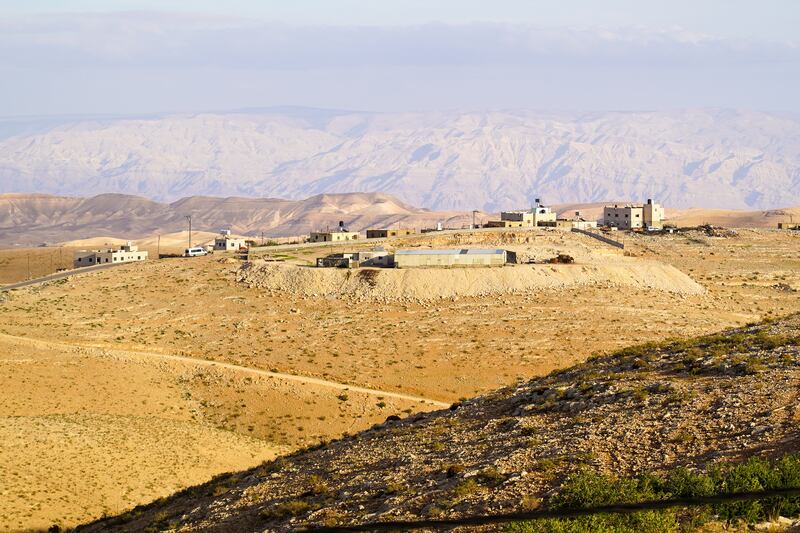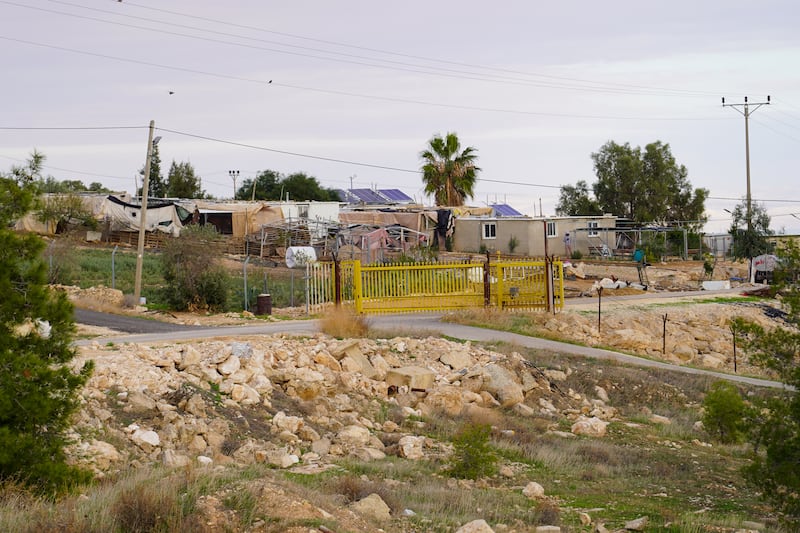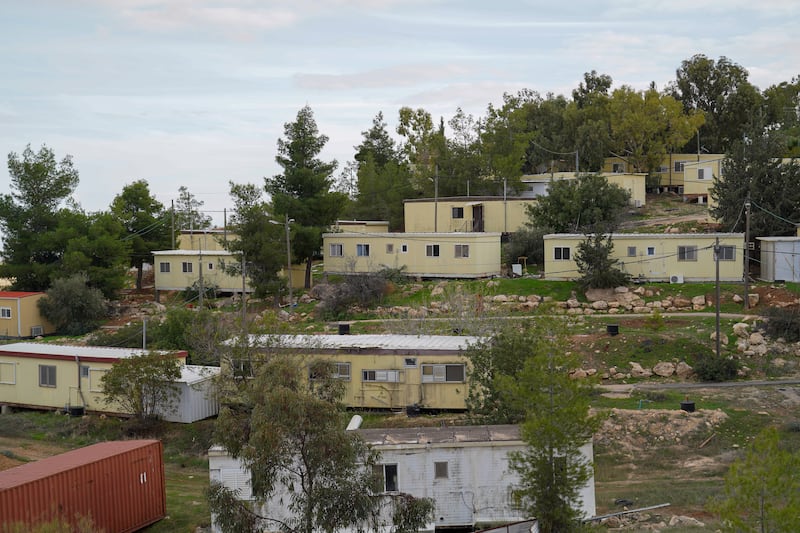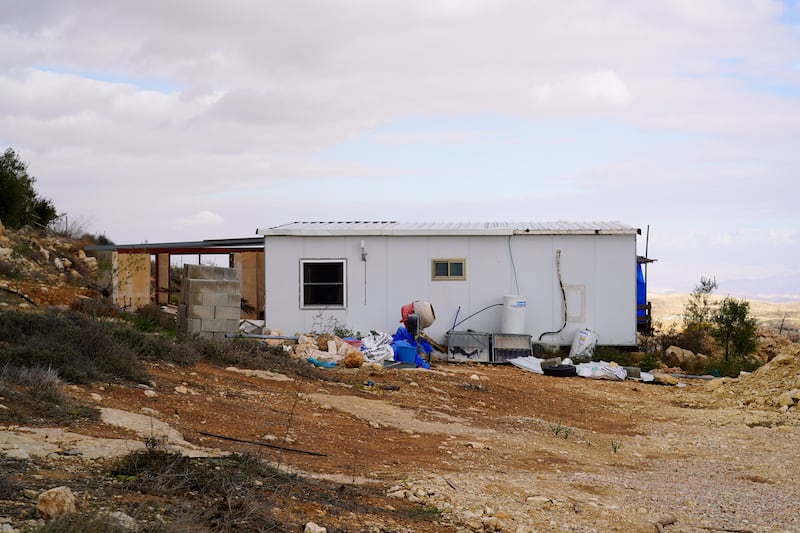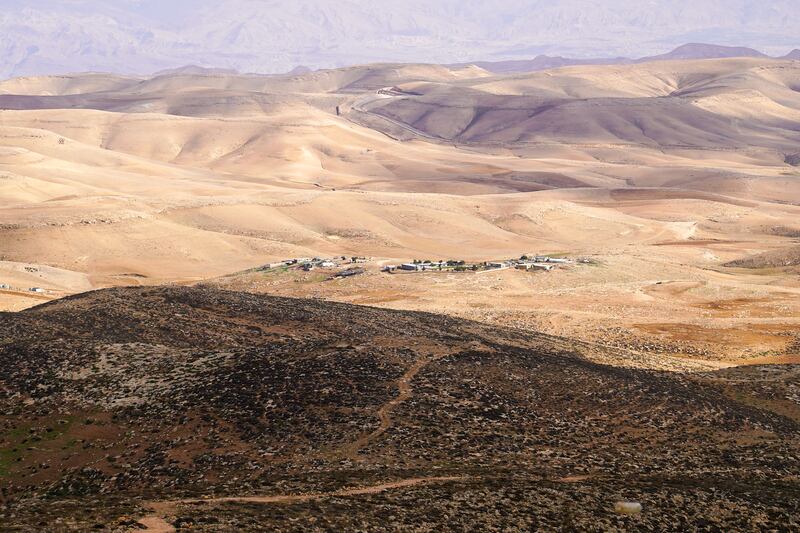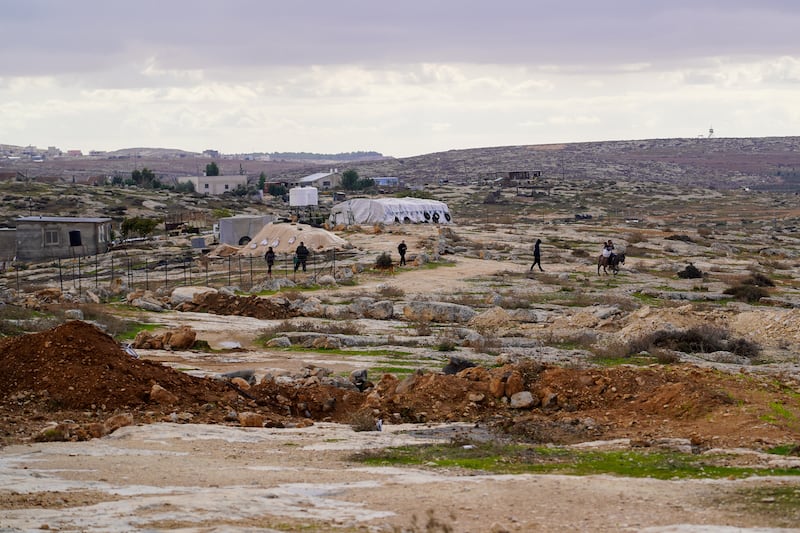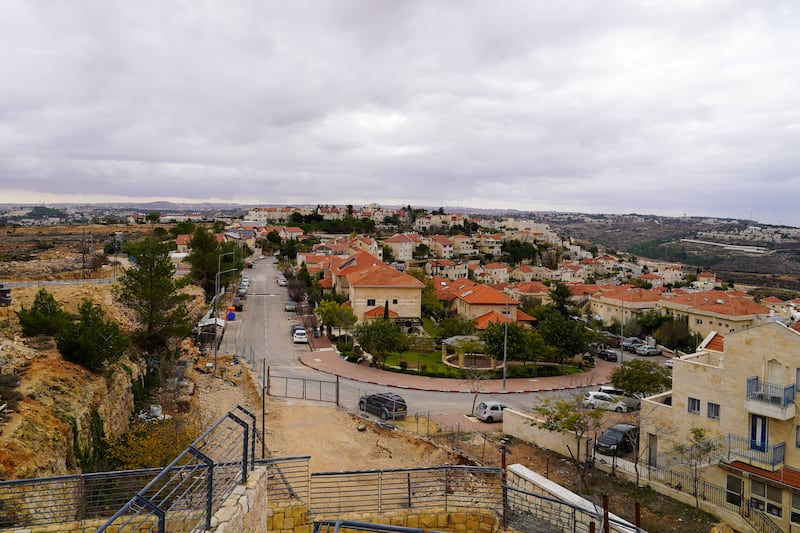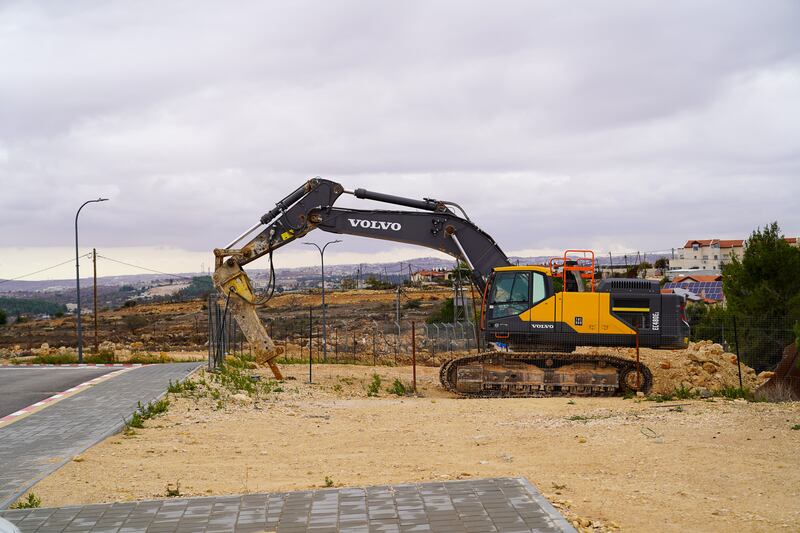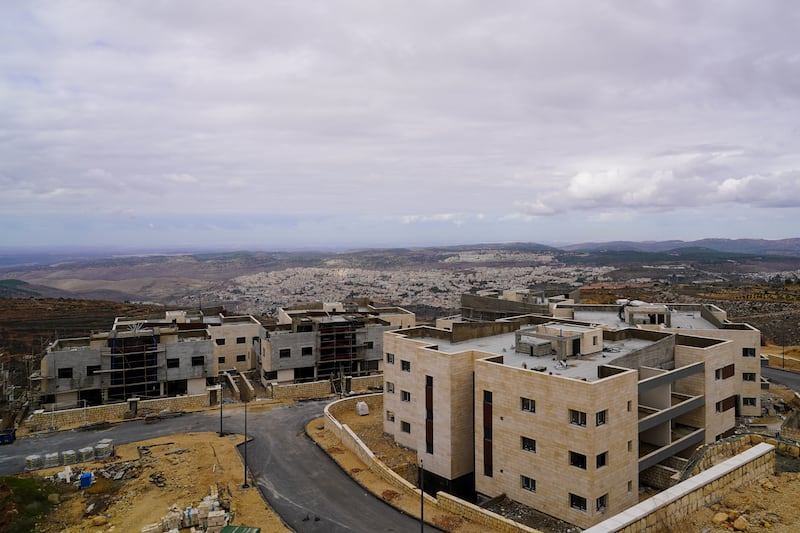Live updates: Follow the latest news on Israel-Gaza
At a hillside cafe in a small Israeli settlement in the occupied West Bank, Ronel Barak and her family busily prepare food for dozens of army reservists called up in the aftermath of the October 7 Hamas attack on southern Israel.
Since Israel declared war on Gaza after the surprise Hamas attack that killed 1,200 people, Ms Barak and her family have been providing free meals of rice, schnitzels and other staples for the soldiers stationed in the area known as the South Hebron Hills.
“Our coping mechanism was to start to feed the soldiers for free,” Ms Barak said. “To help in whatever way we can.”
Ms Barak, 58, lives in Mitzpe Yair, a collection of homes overlooking Masafer Yatta, a group of tiny Palestinian hamlets scattered across the arid hills of South Hebron.
According to the Israeli non-profit organisation B’Tselem, which monitors Israeli settlement activity, about 4,000 Palestinians live in the 30 villages in Masafer Yatta.
Both communities are part of Area C, the tracts of West Bank land that make up the majority of the occupied territory. Area C is under full Israeli control, but under the 1993 Oslo Accords it was supposed to be gradually transferred to the Palestinian Authority.
For several reasons, that never happened and the Oslo Accords collapsed.
Israel remains in full control and the communities of the South Hebron Hills are now at the centre of a fight for land that strikes at the very core of the decades-long conflict.
Area C makes up more than 60 per cent of the occupied West Bank. Israeli settlers like Ms Barak refer to the area as Judea and Samaria and believe it is their right as Jews to live there.
“A fundamental part of being Jewish is living in Israel,” Ms Barak told The National.
“And the question is, what do I see as Israel and what does the world see as Israel? For me this is Israel,” she said referring to the deeply contested land she lives on.
Israeli settlements and outposts are communities built on land occupied by Israel since the 1967 War. They are considered illegal under international law, but Israel contests this.
Israeli settlers have been allowed to build American-style, luxury suburban neighbourhoods. Large stone homes with red-tiled roofs dot the carefully planned and heavily guarded communities.
Homes can fetch millions of dollars and schools, playgrounds and neighbourhood cafes feature prominently. The Palestinian villages, by contrast, often lack even basic amenities such as sewerage and running water.
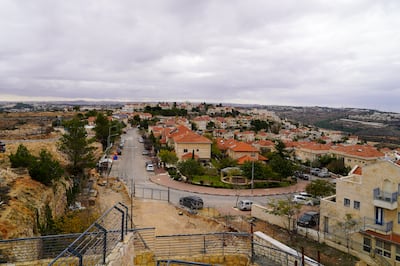
Ms Barak, who emigrated from her native South Africa to Israel in 2010, said she does not believe in a two-state solution.
“I really believe we need to find the solution together and not in separation,” she said. “I don't think we are big enough for separation.”
Human rights groups accuse settlers of actively working to change the demographics of the area in favour of Israel, making any future Palestinian state difficult to envision.
“In general, the aim and thrust of the settlement movement is to prevent the two-state solution,” said Roy Yellin, director of public outreach at B’Tselem.
Indeed, an aerial view of the West Bank reveals increasingly isolated pockets of Palestinian-controlled areas.
“If you look at the map you see we Israelis are keeping the Swiss cheese and Palestinians are left with the holes,” Mr Yellin told The National.
Pro-settler groups accuse Palestinians of doing the exact same thing. They claim the development of Palestinian villages and olive groves, often on land immediately abutting Israeli settlements, is illegal.
These groups say the Israeli government and the international community, particularly the European Union, are protecting Palestinians living in Area C even though it is ostensibly under Israeli control.
“The fact that Israel has allowed this to happen because of international pressure makes it even more complicated and makes it even less likely to arrive at a negotiated resolution,” said Naomi Kahn, director of the international division of Regavim, an organisation that says it is dedicated to the preservation of Israel’s national land.
Israeli settlements – in pictures
While the vast majority of Israeli settlements in the West Bank are filled with modern amenities, most Palestinian villages in Masafer Yatta consist of tent-like structures and makeshift homes. According to Regavim, construction has intensified in recent years.
Settler groups say the communities are illegal because Israel refuses to grant Palestinians building permits. They express frustration at the state for not doing more to deter them.
Since Israel’s far-right government led by Prime Minister Benjamin Netanyahu came to power in December 2022, there has been a significant increase in settlement activity as well as settler violence.
Palestinians driven from land
Settlers have stormed Palestinian communities and forced people from their homes. Palestinians say the situation has deteriorated further since October 7.
In 2022 and the first eight months of 2023, 1,105 Palestinians and four communities were displaced.
Since the October 7 attack on southern Israel, 1,014 people have been forced from their homes, according to the UN Office for the Co-ordination of Humanitarian Affairs (Ocha).
Ocha has reported 284 incidents of settler violence since October 7.
In Khirbet Zanuta, residents say settlers chased people from their homes earlier this month, one of more than 90 incidents recorded by Yesh Din, which tracks settler violence.
In a video provided by B’Tselem to The National, settlers can be seen carrying assault rifles and yelling at Palestinians in Mu’arajat, near Jericho.
At one point in the video, a settler appears to hit someone with the butt of his gun, before flipping it forward, cocking it and then aggressively pointing it in the direction of several people.
Settler rights groups say settler violence is rare and anybody who commits it should be arrested, but that rarely happens.
But as the opposing groups race to secure land, confrontation appears inevitable.
“This is forcing the entire issue to the point of confrontation, and there's no peaceful way to solve that,” Ms Kahn said of Palestinians building homes in Area C.
